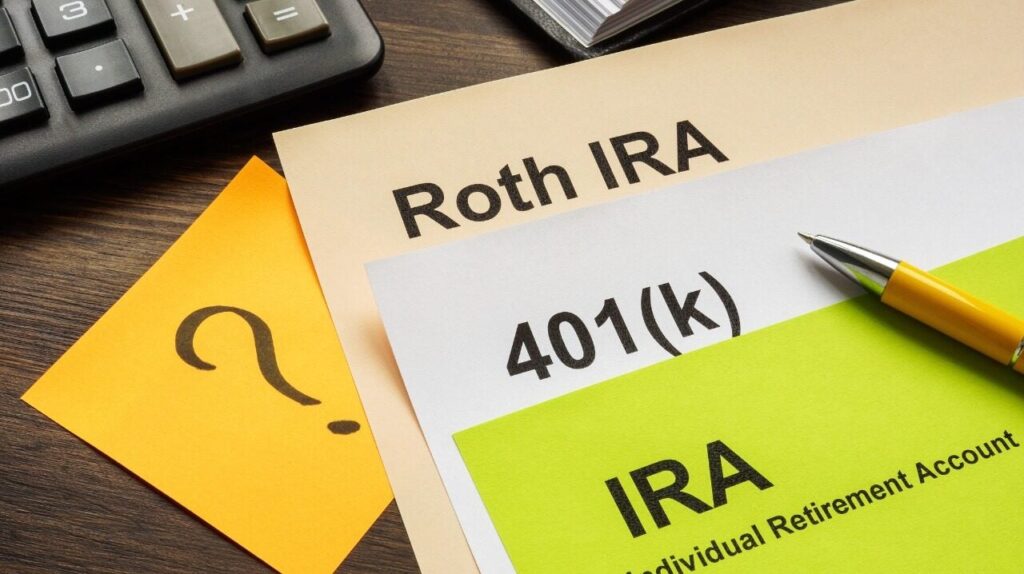Secure Your Tomorrow: The Power of Early and Informed Retirement Planning
Retirement planning is a crucial aspect of securing our future. By starting early and making informed decisions, we can ensure a comfortable and stable lifestyle during our golden years. In this article, we will explore the importance of early retirement planning and discuss the key components that make up a solid retirement plan. We will also address common challenges that individuals face during the retirement planning process and provide strategies to overcome them. Additionally, we will delve into the role of professional financial advisors in guiding us towards a successful retirement.
Understanding the Importance of Early Retirement Planning
When it comes to retirement planning, time is our greatest ally. The earlier we start retirement planning advice, the more time we have to accumulate sufficient savings and investments to support our desired retirement lifestyle. Early retirement planning allows us to take advantage of compounding interest and other investment strategies that can significantly grow our nest egg over time.
But what exactly does early retirement planning entail? It’s not just about setting aside money for the future; it’s about envisioning the life we want to lead and taking the necessary steps to make it a reality. Learn more about retirement realities.

Planning for a Fulfilling Retirement Lifestyle
By planning ahead and making well-informed decisions, we can shape our retirement lifestyle according to our preferences. Early planning enables us to set realistic goals and take necessary actions to achieve them. Whether it’s traveling the world, pursuing hobbies, or enjoying quality time with family, early retirement planning empowers us to design the life we envision.
Imagine waking up on a Monday morning, knowing that you have the freedom to spend your day however you please. With early retirement planning, you can create a retirement lifestyle that allows you to pursue your passions and interests without the constraints of a 9-to-5 job. Whether it’s starting a new business venture, volunteering for a cause you’re passionate about, or simply enjoying leisurely activities, early retirement planning sets the stage for a fulfilling and purpose-driven life.
The Role of Informed Decision Making in Retirement Planning
Retirement planning involves various financial decisions, such as determining our retirement goals, evaluating our current financial status, and identifying potential sources of retirement income. Making informed decisions in these areas is crucial to ensure a financially secure retirement. By taking the time to gather information, analyze our options, and seek professional advice when necessary, we can make confident choices that align with our long-term objectives.
One important aspect of informed decision making in retirement planning is understanding the different investment vehicles available to us. From stocks and bonds to real estate and mutual funds, there are a plethora of options to consider. By educating ourselves about these investment options and their potential risks and rewards, we can make strategic investment decisions that maximize our returns and secure our financial future.
Furthermore, informed decision making in retirement planning extends beyond just financial considerations. It also involves thinking about our health, social connections, and overall well-being. Early retirement planning allows us to proactively address these aspects of our lives, ensuring that we have a comprehensive plan in place to maintain a healthy and fulfilling lifestyle throughout our retirement years.
Key Components of a Solid Retirement Plan
A well-structured retirement plan consists of several essential components. By addressing each of these components, we can build a solid foundation for our future.
Determining Your Retirement Goals
It’s important to have a clear understanding of what we want to achieve during our retirement years. By setting specific goals, such as the desired retirement age, planned activities, and desired standard of living, we can create a roadmap to guide our financial decisions.
For example, envisioning our retirement might involve picturing ourselves traveling to exotic destinations, indulging in hobbies we never had time for, or simply enjoying quality time with loved ones. By visualizing our retirement goals, we can better understand the financial resources needed to support our desired lifestyle.
Evaluating Your Current Financial Status
Before planning for retirement, it’s crucial to assess our current financial situation. This includes evaluating our savings, investments, debts, and overall financial health. By understanding where we stand today, we can better plan for the future and make any necessary adjustments to ensure a comfortable retirement.
One aspect to consider when evaluating our financial status is our debt-to-income ratio. This ratio helps us determine how much of our income is going towards debt payments, such as mortgages, car loans, or credit card debt. By reducing our debt and improving our debt-to-income ratio, we can free up more funds to allocate towards retirement savings.
Identifying Potential Sources of Retirement Income
Retirement income can come from various sources, such as savings, investments, pensions, and Social Security. Identifying and understanding these potential income streams allows us to estimate our retirement income and determine if it aligns with our goals. By exploring different options, we can ensure a diversified and stable income during retirement.
When considering potential sources of retirement income, it’s important to take into account the current economic climate and any potential changes in government policies. For example, understanding how changes in tax laws or Social Security regulations may impact our retirement income can help us make informed decisions and adjust our financial strategies accordingly.
Additionally, exploring investment opportunities that offer a balance between risk and return can help us maximize our retirement income. This might involve diversifying our investment portfolio to include a mix of stocks, bonds, and other assets that align with our risk tolerance and long-term goals.

Overcoming Common Retirement Planning Challenges
Although retirement planning is essential, it can also present challenges that need to be overcome. Understanding and addressing these challenges will help us navigate the retirement planning process more effectively.
Dealing with Uncertainties in Retirement Planning
Retirement planning involves making assumptions about the future, such as life expectancy, healthcare costs, and market performance. Uncertainties in these areas can create anxiety and impact our planning. However, by staying informed, regularly reviewing our plan, and making adjustments as needed, we can better adapt to unexpected changes.
For example, when estimating life expectancy, it’s important to consider factors such as family history, lifestyle choices, and advancements in medical technology. By taking these variables into account, we can create a more accurate projection of how long our retirement savings will need to last.
Additionally, healthcare costs can be a significant concern during retirement. To address this uncertainty, it’s crucial to research and understand the options available for healthcare coverage, such as Medicare and supplemental insurance plans. By staying informed about healthcare costs and potential changes in the healthcare landscape, we can better prepare for this aspect of retirement.
Addressing the Risk of Outliving Your Retirement Savings
One of the biggest fears individuals have when it comes to retirement planning is the risk of outliving their savings. To mitigate this risk, it’s crucial to carefully estimate our retirement expenses, consider longevity factors, and implement strategies that provide a steady stream of income throughout our retirement years.
When estimating retirement expenses, it’s important to account for both essential and discretionary spending. Essential expenses include housing, food, and healthcare, while discretionary expenses may include travel, hobbies, and entertainment. By creating a comprehensive budget that encompasses all aspects of our desired lifestyle, we can better gauge how much income we will need during retirement.
Furthermore, considering longevity factors such as family history, personal health, and lifestyle choices can help us make more accurate predictions about how long our retirement savings will need to last. By taking these factors into account, we can adjust our savings and investment strategies accordingly.
Implementing strategies that provide a steady stream of income throughout retirement is also crucial. Options such as annuities, dividend-paying stocks, and rental properties can help supplement retirement savings and provide a reliable source of income. By diversifying our income streams, we can reduce the risk of relying solely on our savings and investments.

Strategies for Effective Retirement Planning
Now that we understand the importance of early and informed retirement planning and have addressed common challenges, let’s explore some strategies to enhance our retirement plan.
When it comes to retirement planning, one strategy that can make a significant difference is maximizing your retirement contributions. Contributing the maximum amount allowed to retirement accounts, such as 401(k)s or IRAs, can significantly boost our retirement savings. By taking advantage of employer matching programs and making regular contributions throughout our working years, we can set ourselves up for a comfortable retirement. It’s important to remember that even small contributions can add up over time, so starting early and staying consistent is key.
In addition to maximizing contributions, diversifying your retirement portfolio is another strategy that can help you achieve your retirement goals. Investing your retirement savings in a diversified portfolio can help mitigate risk and maximize returns. By spreading your investments across different asset classes and sectors, you can reduce the impact of market volatility and potentially increase your overall returns. This approach allows you to take advantage of different investment opportunities and adapt to changing market conditions.
While maximizing contributions and diversifying your portfolio are crucial strategies, it’s also important to consider the role of Social Security in retirement planning. Social Security benefits play a significant role in many individuals’ retirement income. Understanding how Social Security works, including factors such as eligibility age and claiming strategies, can help us optimize our benefits. By considering Social Security as part of our retirement plan, we can ensure we make the most of this important income source.
When it comes to retirement planning, there is no one-size-fits-all approach. It’s essential to consider your individual circumstances, goals, and risk tolerance when implementing these strategies. Consulting with a financial advisor can provide valuable guidance and help you create a personalized retirement plan that aligns with your needs.
The Role of Professional Financial Advisors in Retirement Planning
While it’s possible to handle retirement planning on our own, professional financial advisors can provide valuable guidance and expertise. Knowing when to seek their assistance can make a significant difference in the success of our retirement plan.
When to Seek Professional Financial Advice
Engaging the services of a financial advisor is beneficial when we need expert assistance in navigating complex financial matters, making investment decisions, and ensuring our retirement plan aligns with our goals. A professional advisor can help us create a personalized plan, monitor our progress, and provide ongoing support and education.
How Financial Advisors Can Enhance Your Retirement Planning
Financial advisors have the knowledge and experience to analyze our financial situation, identify potential risks, and recommend suitable strategies to achieve our retirement goals. They can help optimize our investment portfolio, provide tax-efficient strategies, and assist with estate planning. By partnering with a financial advisor, we can feel more confident and secure in our retirement journey.In conclusion, early and informed retirement planning is crucial for securing our future and achieving a comfortable retirement lifestyle. By understanding the importance of early planning, addressing key components of a solid retirement plan, overcoming common challenges, and leveraging strategies for effective retirement planning, we can take control of our financial future. Additionally, recognizing the role of professional financial advisors in guiding us towards success can provide valuable support and ensure we make the most of our retirement years. So, let’s start planning today and set ourselves up for a secure and fulfilling tomorrow.


